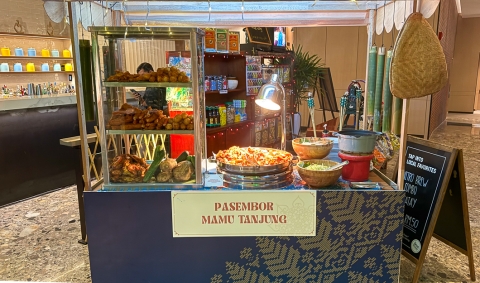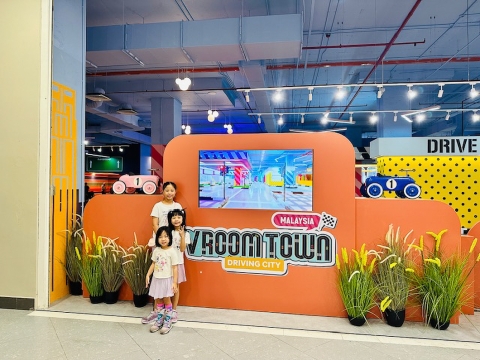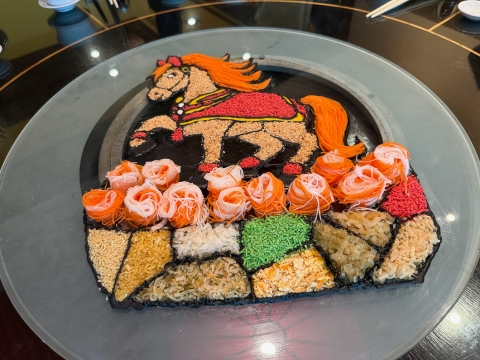Taking care of family members with dementia can be very challenging. With proper knowledge and understanding of their conditions, we are able though to develop empathy and patience when dealing with them. We try not to let emotions get in the way, because we know that their behaviours do not represent them.
My mother was a nurse all her life until she retired at the age of 60. She was active, loud and energetic, and being a nurse, she would constantly give advice to others on how to stay healthy by exercising and eating well. After my father passed on, she was living alone. We would visit her every few months, but when we got busier, our visits were less frequent. We would just call her over the phone for a chat and to check on her.

Everything seemed fine until one day, when my calls to her went unanswered, and my heart just froze. This was one of my fears – that something would happen to her and nobody would know. I dropped everything and took the earliest available train home and found her conscious, but unable to get up from bed. I rushed her to Emergency and she was warded for hypertension- her blood pressure was at a very dangerous point.
My mum’s dementia
Those few days at the hospital made me realise how frail my mother had become – she was not eating well and she was sleeping too much. She was also showing signs of forgetfulness- repeating questions that we had answered just a while ago, or not remembering what she had just eaten (or whether she had eaten or not). And she was walking unusually slowly and with a queer feet-dragging manner – she was always a brisk walker who walks ahead of everyone! Seeing these signs, I realised she could no longer live alone. And I had to bring her to KL with me so that my family could take care of her here.


Those important three daily meals
We make sure she has three meals every day. On her own, she would either not remember to eat, or would eat unhealthily, like instant noodles. And we make sure she takes her medications and supplements at the right time. Other than the medications prescribed by the doctors, I give her supplements like virgin coconut oil, ginkgo biloba, and multivitamins. But these do not replace the need for a healthy diet of fruits and vegetables and healthy grains. We make sure everyone has plenty of nutritious food on the table at every meal.
Much-needed exercise
We also got her out to walk every morning and evening, and to get some vitamin D from the sun for strong bones and healthy muscles. Very gradually, her steps got quicker and sturdier, and now she no longer drags her feet while walking. When I pointed it out to her, she gave me a glare and retorted: “I NEVER drag my feet!” And that is that. She has been living with us for three years now, but she thinks it’s just been two months. She used to constantly ask us to take her back to her own home, but now, that doesn’t come up anymore.
How the kids are helping
My kids try to get her busy with recycling projects which she enjoys. And lately, my daughter started her on an embroidery project, and she loves it! She used to embroider in her younger days and this memory is still intact. But anything new is next to impossible to get in. Due to her dementia she won’t retain new information well. This is most evident during our nightly game of mahjong – we consider it group therapy for the elderly (we also have my father-in law and mother in law with us – so amongst the 3 octogenarians, their total age comes up to 250!), when she doesn’t understand the ‘new rules’ the other play with.

My mother could remember to play the game (to my great surprise, because I never knew she could play mahjong!). She said she played it when she was very young, but never touched it since then. After so many decades, she could still remember how to play the game. So this confirms the fact that people with dementia has cognitive defect when it comes to new memory, but old memories are intact.
Another octogenarian diagnosed with Alzheimer’s…
Not long after my mom moved in with us, another shocking revelation happened: my father-in law was showing rapid signs of memory and cognitive degeneration and was later diagnosed as having Alzheimer’s. This was even more shocking than my mother’s case, because my father-in-law had maintained an active lifestyle with walking more than 10,000 steps a day and practising his qigong.
Things went downhill when we noticed he started getting lost every time he drove out with the car. He even got lost one day cycling out and only returned home after several hours! After several of such incidents, we stopped him from driving and cycling. Now his only job is to walk our dogs in our neighbourhood. We also track him on the phone, so that we know he doesn’t go out of his perimeters.
A family’s commitment
My mother and father-in-law are no longer the same persons we knew them to be. Some parts have gone missing, but whatever is left, we try to make the best of it, with love and positivity. It’s a family commitment and involvement – everyone has a role to play in taking care of them, that includes the grandchildren and those who are far away – they can still call regularly and talk to them and keep their memories alive. For they do feel very happy when family members call up to check in on them. Even though their memories are fading, their love remains intact. And that is all that matters.




















2 Responses
A timely and heart warming article!
Thank you Hin Yue